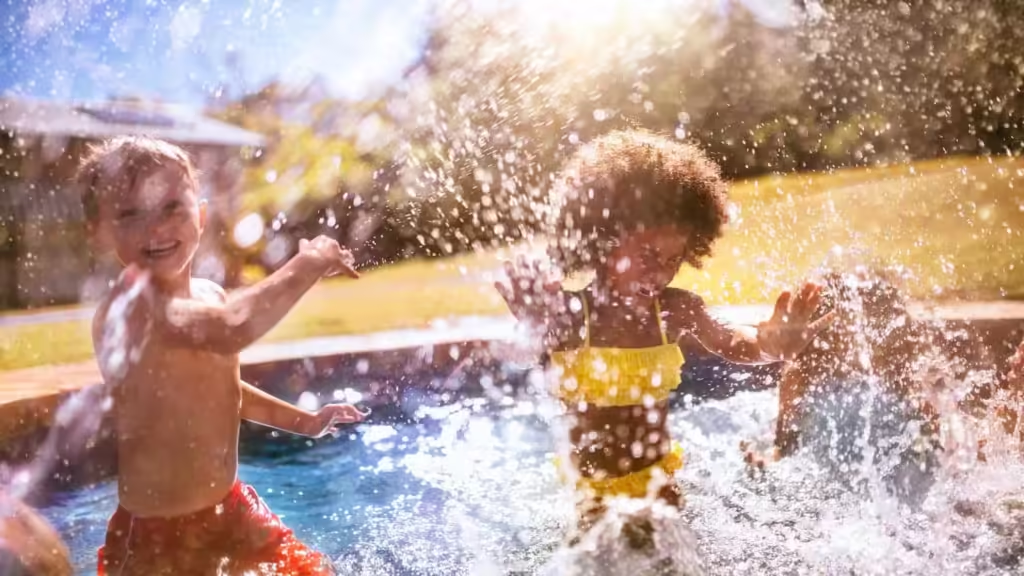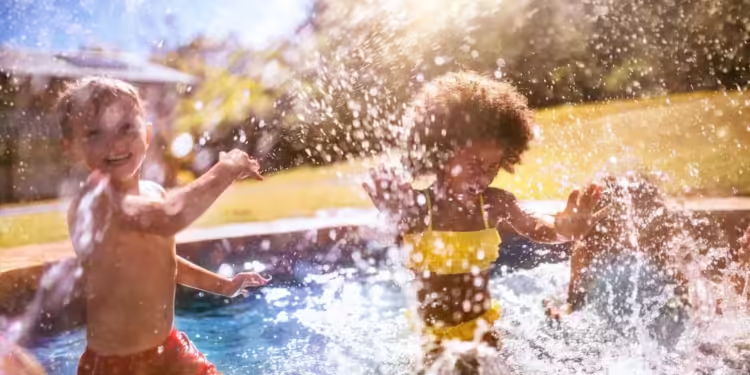Owning a swimming pool is a fantastic way to enjoy quality time with family and friends, particularly during the warmer months. However, as wonderful as pools may be, they come with responsibilities—most importantly, ensuring everyone’s safety. Drowning is one of the leading causes of unintentional injury-related deaths, especially among children. Fortunately, pool-related accidents are avoidable with the right preventative measures and a commitment to vigilance.
This guide outlines essential pool safety tips every pool owner should implement. From necessary safety equipment to supervising children effectively, these steps will ensure your pool is a safe haven for relaxation and fun.
Essential Pool Safety Equipment
Pool safety begins with the right tools and barriers to prevent accidents. These essentials provide a first line of defence, particularly for households with young children or pets.
Install Secure Pool Fencing
A sturdy pool fence is not just a recommendation; in many regions, it is a legal requirement. Ensure the barrier is at least 1.2 metres high, surrounds the pool entirely, and has a self-closing, self-latching gate. This prevents unsupervised access and keeps wandering little ones and pets at bay.
Tip: Regularly inspect your pool fence for wear and tear, ensuring it consistently performs its primary function—keeping everyone safe.
Pool Covers and Safety Nets
Using a robust pool cover or safety net adds an additional layer of protection. Automatic covers work particularly well as they act as a solid barrier when the pool is not in use. Not only do they reduce the risk of accidents, but they also keep debris out, reducing maintenance costs.
Invest in a Pool Alarm
A pool alarm is a technological safeguard designed to alert you if someone enters the water unexpectedly. Whether it’s a surface alarm that detects water movement or a gate alarm that activates when the pool fence opens, this device provides invaluable peace of mind.
Supervision and Adult Responsibility
Even with the best safety equipment in place, human supervision is irreplaceable. Ensuring an adult is present and vigilant during swimming activities drastically reduces the likelihood of accidents.
Always Have a Designated Supervisor
Distracted supervision is one of the most significant risks around pools. During a gathering, designate a specific adult as the “water watcher” to monitor swimmers, particularly children. Avoid using your phone or engaging in tasks that may draw your attention away.
Establish and Enforce Pool Rules
Set clear, non-negotiable rules for anyone using the pool, such as no running around the edges, no roughhousing, and avoiding pool access without express permission. Ensure all visitors, particularly children, understand and adhere to these rules.
Pro Tip: Display a visible pool rule chart near your pool area to remind everyone of the expectations.

Teaching Kids About Pool Safety
Children should not only rely on adults for their safety; they should also be educated to recognise potential hazards and act appropriately.
Enrol Kids in Swim Lessons
Teaching children how to swim is one of the most effective ways to enhance their pool safety. Enrol them in lessons suited to their age and skill level—ideally starting as young as six months old for water-familiarisation classes.
Explain the Importance of Boundaries
Ensure children understand the pool is off-limits without adult supervision. Encourage them to always seek permission before they enter the pool area.
Practise “Reach Out, Don’t Jump”
Teach children that if a friend or sibling is struggling in the pool, they should never jump in to help. Instead, show them how to lie down and reach out with an object, such as a pool noodle or stick, to assist safely.
Emergency Preparedness
Even with thorough precautions, emergencies can still happen, and being prepared can make all the difference in saving a life.
Learn CPR and Basic First Aid
Every pool owner and adult swimmer should be trained in CPR and basic first aid. Being able to respond quickly during the crucial minutes following an accident could save a life.
Tip: Consider attending a refresher course annually to maintain your skills and confidence.
Keep the Right Equipment Nearby
Your pool area should have a fully stocked first aid kit, a life-saving ring buoy, and a sturdy reaching pole within easy reach at all times. Ensure these items are maintained and ready for use.
Have a Clear Emergency Plan
Create an emergency action plan for pool-related accidents and ensure everyone in the household is familiar with it. This plan may include steps such as calling emergency services, administering first aid, and notifying neighbours in case additional help is needed.
Additional Pool Safety Considerations
While drowning prevention is a central focus, other hazards exist around pools, from chemical misuse to slippery surfaces. Consider these additional precautions to make your pool area as safe as possible.
Handle Pool Chemicals Responsibly
Chemicals such as chlorine are necessary to keep pool water clean, but they can be hazardous if used incorrectly. Store chemicals in a secure, dry place away from children and pets, and always follow the manufacturer’s instructions for use.
Prevent Slips and Falls
Install non-slip surfaces around the pool area to reduce the risk of slipping. Make it a rule for swimmers to dry off before exiting the pool deck to avoid pooling water that can lead to falls.
Regular Pool and Equipment Maintenance
Proper maintenance of your pool and its equipment ensures safe swimming conditions. Schedule regular pool inspections for structural integrity, water quality, and the functionality of components like filters and pool covers.
Make Pool Safety Your Priority
A pool adds joy, relaxation, and entertainment to any home, but it also carries significant responsibility. By implementing these pool safety tips, you can create a safe environment for your family and friends while enjoying all the benefits the Newcastle swimming pool range offers.
Small changes, like installing a pool cover or enrolling kids in swimming lessons, can have a lasting impact on safety and peace of mind. Take that first step today—because a safe pool is a fun pool.






